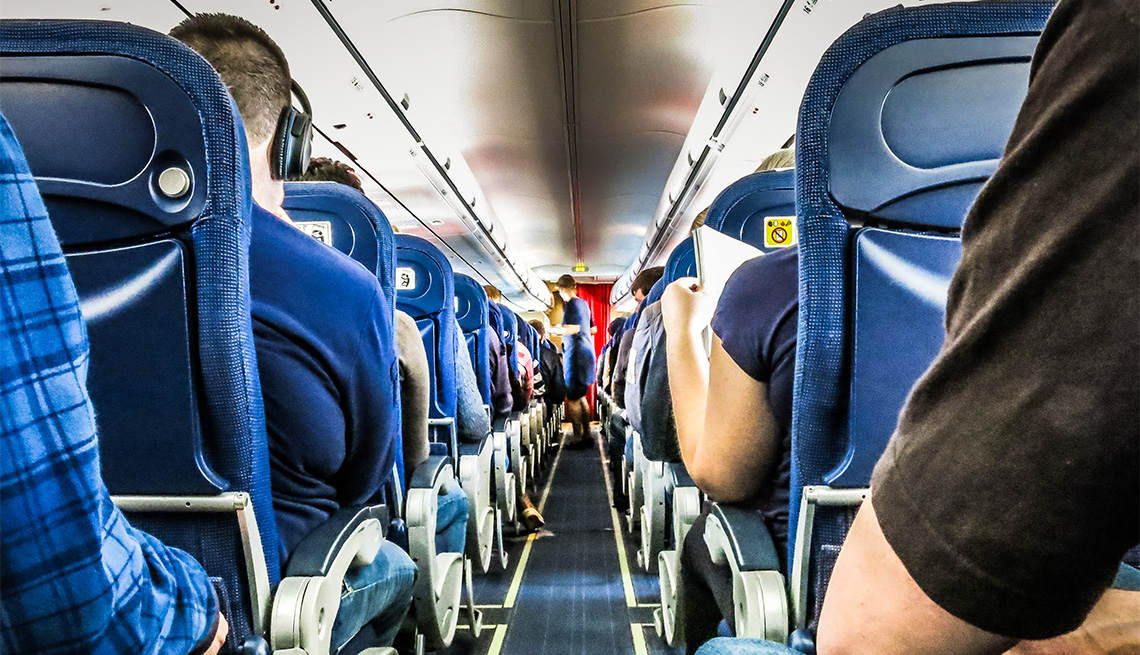
- Select a language for the TTS:
- UK English Female
- UK English Male
- US English Female
- US English Male
- Australian Female
- Australian Male
- Language selected: (auto detect) - EN
Play all audios:
"It's especially important to drink plenty of fluids if you're on medication,” Gendreau says. Some drugs act as diuretics — blood pressure meds, for example — and can dry you
out. What to avoid, Testa says: coffee, alcohol and sugary drinks, which will dehydrate you even more. On all the typically germy surfaces, especially tray tables, use a hand-sanitizing gel
(with at least 60 percent alcohol). USE A NASAL SPRAY Our mucous membranes are far less effective at blocking infection if they dry out, says Michelle Barron, M.D., professor of
medicine-infectious disease, UCHealth, University of Colorado Hospital. A few quick pumps, every two hours, will keep them moist. Look for a saline spray, Testa advises. It's the same
pH as the delicate tissues in your nose, so it won't sting. Avoid medicated nasal sprays or anything with preservatives, which can dry out nasal passages. While you're at it, stash
a small bottle of eye drops in your bag. They'll relieve dry, itchy eyes, making you a lot less likely to rub them with (possibly) contaminated fingers. STRETCH YOUR LEGS The position
of the seatback tends to slow circulation, putting us at risk for deep-vein thrombosis, the formation of blood clots in the legs. Since most flights are packed for holiday travel,
you're more likely to remain seated. Resist the urge to stay put, and move about the cabin every hour or so. If you don't want to budge, Gendreau says, you can do this exercise to
help improve circulation: With your feet flat on the floor, bring your heels up and down, up and down, in a rocking motion. And if you are over 60 or obese, or have a history of heart
disease, varicose veins or blood clots, see your doctor before your trip, especially if the flight is longer than two hours. RELAX “One of the most under-discussed negative influences on our
health is the effect of stress in lowering our immune system and the ability to fight off germs,” says DGMQ's Cetron. And let's face it: A day at the airport can frazzle the
nerves of even the intrepid traveler. "You're worrying about getting to the airport, then you have to navigate to the kiosk, get your ticket, get through security and get to the
right gate,” Gendreau says. “Pretty soon, we're engaging in anxious behaviors. We'll start rubbing our eyes or biting our nails, and that's a total disaster.” Do what you can
to eliminate stressors — from getting to the airport early for your flight, to having a meditation app on hand. _Editor's note: This article was originally published on December 24,
2019. It has been updated with the AARP Top Tips video._






